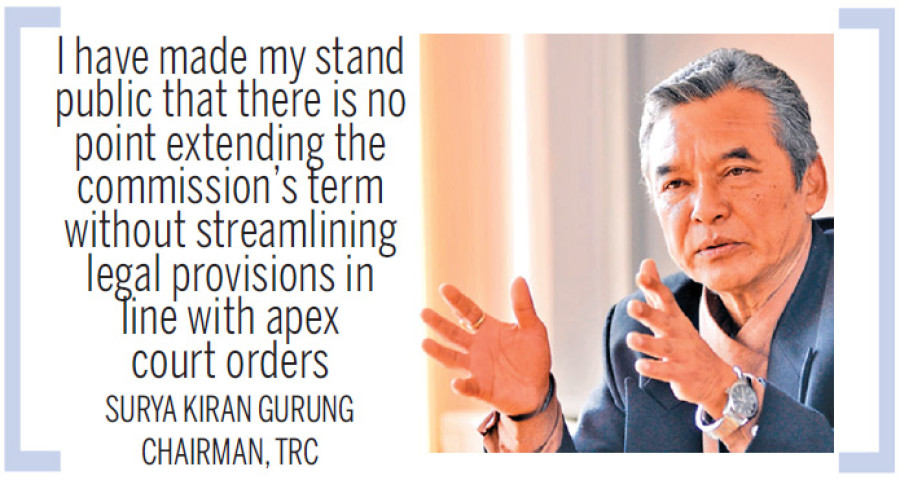Miscellaneous
Transitional Justice process hangs in balance: Victims worried about being left out in cold
In about two weeks, the terms of the two transitional bodies formed two years ago to hear complaints on war-time human rights violations and disappearances and recommend actions will end.
Dewan Rai
In about two weeks, the terms of the two transitional bodies formed two years ago to hear complaints on war-time human rights violations and disappearances and recommend actions will end.
The Truth and Reconciliation Commission (TRC) and the Commission of Investigation on Enforced Disappeared Persons (CIEDP) have received 60,000 complaints. With no decision yet, even as the terms end on February 10, on giving extension to the two bodies, conflict victims are increasingly worried whether justice would ever be delivered.
What is very concerning is Supreme Court orders to amend the legislation, which allows amnesties to perpetrators, to bring it in line with Nepal’s obligations under international law have been grossly ignored, say conflict victims.
The two commissions were formed for two years as per the Enforced Disappearances Enquiry, Truth and Reconciliation Commission Act, with the possible extension of one more year.
“I have made my stand public on many occasions that there is no point extending the commission’s term without streamlining the legal provisions as per the apex court orders,” said TRC Chair Surya Kiran Gurung. “I have no desire to cling on to the post only to produce a report.”
Gurung said the amendment to the existing transitional justice law will not only facilitate the investigation process but also earn the trust of conflict victims.
Although the CIEDP has already prepared a work plan for three years, it has made up its mind to consult the TRC on extension of its tenure.
“We are holding a meeting on Friday to make a unanimous decision on how to go about it,” said CIEDP Chair Lokendra Mallick.
The CIEDP has more challenges ahead, as the act of disappearance is not criminalised in Nepal. The government has been sitting on the draft of the bill the commission had forwarded last year seeking to criminalise the act of disappearance.
Mallick said the commission would immediately start investigation into the complaints once the government decides on two major issues: legal reforms and extension of office term.
Human rights bodies have blamed the government for failing to keep its promises to amend the law in line with the international laws and standards of transitional justice process. The incumbent government was formed in August with promises to expedite the transitional justice process and conclude the remaining tasks of the peace process. But the government is yet to amend the transitional justice act.
“It has been too long a wait for justice,” said Ram Kumar Bhandari, general secretary of Conflict Victims’ Common Platform (CVCP). “The government should be responsible for the consequences if the ongoing transitional justice process, which is half way through, fails without result.”
Failure to extend the terms, amend legislation in line with court orders and punish perpetrators threatens to render the work completed by the commissions so far null, which will leave conflict victims out in the cold.




 13.16°C Kathmandu
13.16°C Kathmandu










